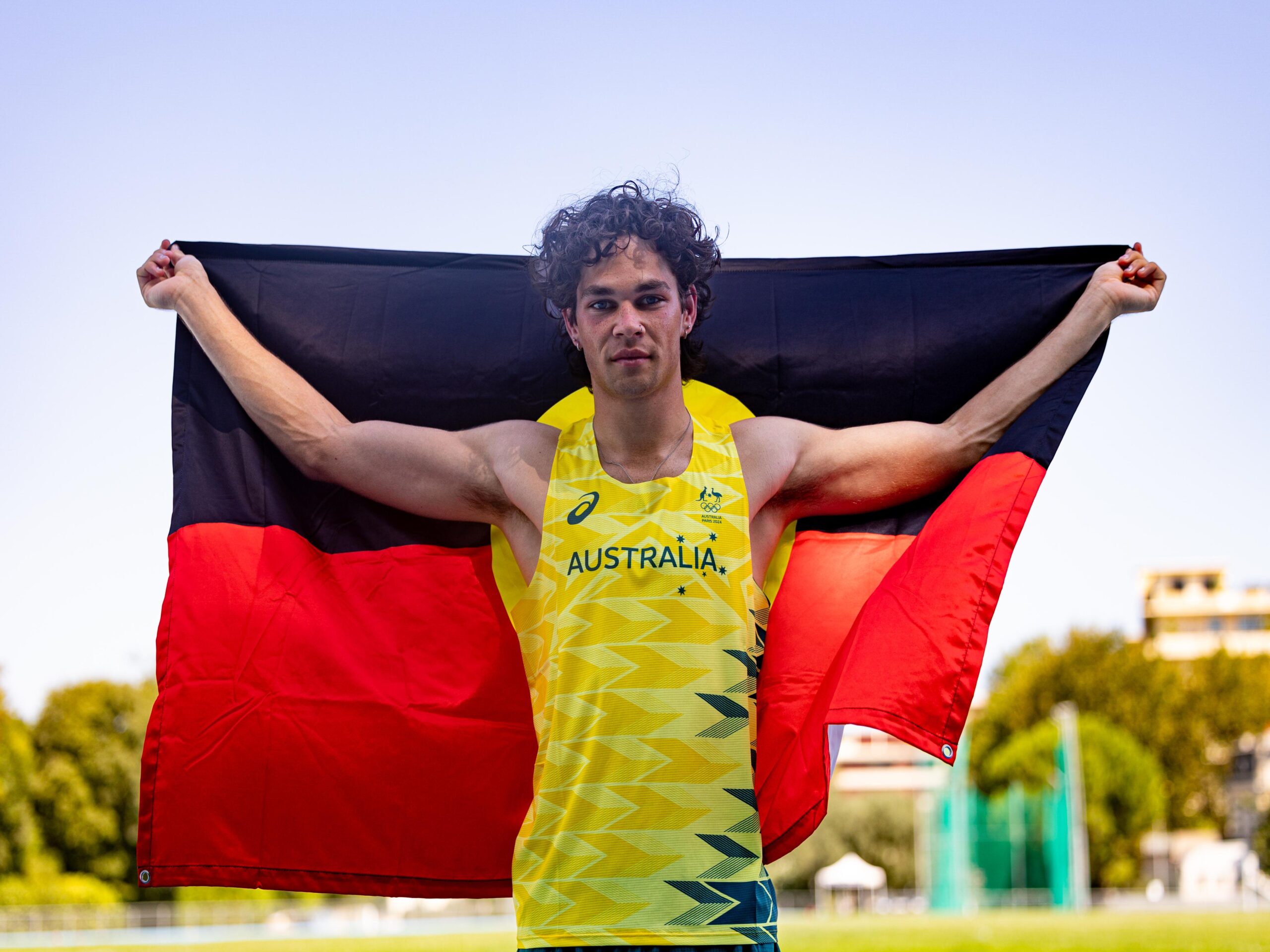
Driven by his deep connection to his Wakka Wakka heritage, sprinter Calab Law is ready to inspire a new generation of Indigenous athletes in the same way that Cathy Freeman did in Sydney 2000.
At just 20 years old, Calab has already made moves. He became the first Australian teen to reach a semi-final in the 200m at a World Athletics Championships, and followed up his feat with his maiden global medal at the World Under 20 Championships just weeks later.
But on the eve of his Olympic debut in Paris, the rising star of Australian sprinting cares most about paving the way forward for Indigenous kids.
“The Olympics is the goal. It’s everyone’s goal in athletics. I’m proud to represent Australia but also the other side of me, and that’s my Indigenous side,” Calab said.
“Growing up, I had people around me telling me I could be this or I could be that, but not everyone has that. It’s super important to be able to have someone to look up to, and especially Indigenous kids.”
Growing up as one of six children in Caboolture, Queensland, Calab found his way to athletics through his aunty Karla at the age of 10. A 400m sprinter herself, Karla unearthed his talent and encouraged her nephew to explore a new passion.
While he stepped away from the sport for a few years, a return to athletics at the age of 15 unlocked a new vision.
Working under the tutelage of Andrew Iselin, a sprints coach from the Wiradjuri people in New South Wales, Law began to take his training seriously and was reminded of what his hero, trailblazer Cathy Freeman had achieved with a little bit of hard work.
With his aunt and coach by his side and inspiration all around him, it was not long before he set his mind to representing Australia.
“Seeing what Cathy did in Sydney showed me what’s possible. I’ve watched her videos, I’ve watched her Olympics 2000 race. My mum used to play it on the TV. I still find it inspiring today,” he said.
An icon of Australian sport, Cathy’s success made Calab believe that he too could achieve greatness.
“I want someone to look up to me like I look up to Cathy or look up to other Indigenous sprinters – that’s really what I want by the end of my career.”
The only known First Nations person on the Australian Athletics Team in Paris, Law says that the lack of representation does not weigh heavy on his shoulders.
“I’m proud to be that person. I’m proud to be a person that others like me can look up to. I think many need that push, because every single one of them could be amazing if they wanted to,” Calab said.
“I know so many Indigenous kids that can run as fast as me. We’re probably faster than the average person in Australia but it’s just about having that extra push like when I was a kid.”
For coach Iselin, the growth he has seen in Calab as both an athlete and a person has been a highlight in his career.
“I’ve always had a soft spot for Calab. The first two or three years of training, he didn’t take it seriously but he’s like family now,” Iselin said.
“It has been a slow process of sort of repeating the training and making sure I didn’t push him too hard too early, but I am incredibly proud of where he is today.
Having coached many Indigenous athletes over the years, Iselin knows how difficult it can be for
“Representation is really important to me. We need to have more Aboriginal people as mentors and in different positions to make a difference in reconciliation. Without those people in these positions it’s a lot harder,” Iselin said.
“Calab has a real opportunity to make some changes and I look forward to seeing what he can do.
The Track and Field events will be held from 2 – 10 August in the Stade de France in Paris-Saint-Denis.
By Sascha Ryner, Athletics Australia and Australian Olympic Committee
Posted 25/07/2024

